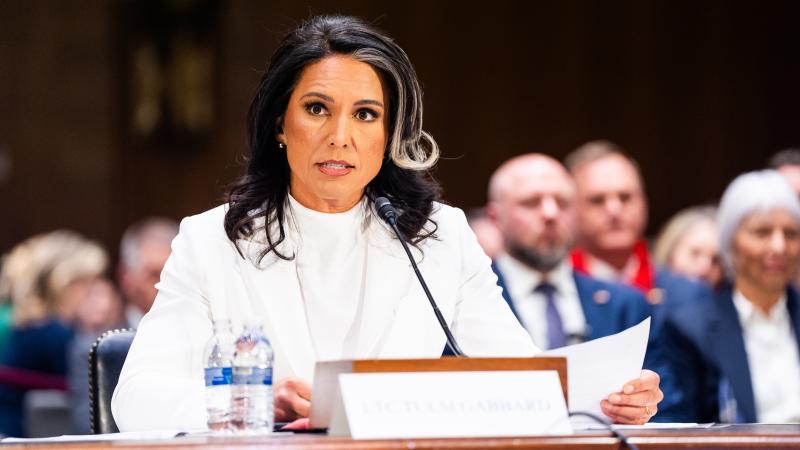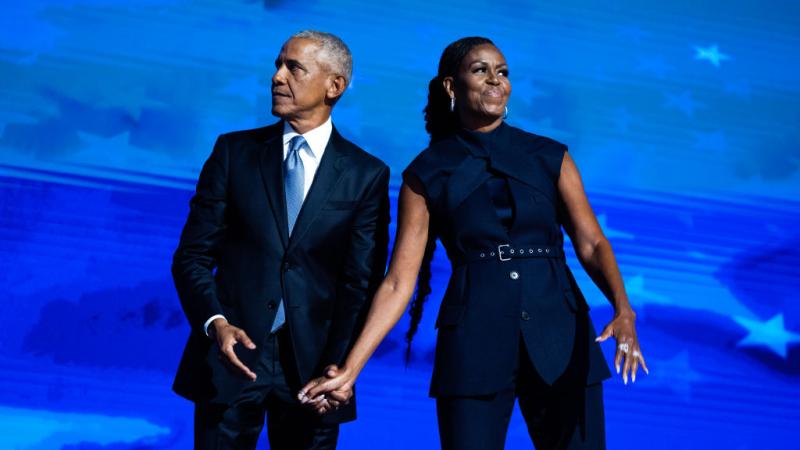Lax FAA oversight of COVID funds led to hundreds of millions in unsupported, questioned costs: OIG
Reduced documentation requirements factored into $271 million in unsupported costs, $85 million in questioned costs, $3 million in improper payments, DOT inspector general found.
The Golden Horseshoe is a weekly designation from Just The News intended to highlight egregious examples of wasteful taxpayer spending by the government. The award is named for the horseshoe-shaped toilet seats for military airplanes that cost the Pentagon a whopping $640 each back in the 1980s.
This week's Golden Horseshoe is awarded to the Federal Aviation Administration for lax oversight of COVID-19 funds that led to $271 million in unsupported costs, $85.8 million in questioned costs and $3 million in improper payments, according to an audit by the Department of Transportation Office of Inspector General.
The OIG found that "changes in the agency's oversight process regarding supporting documentation requirements affected its ability to monitor program performance," determining that it contributed to hundreds of millions in questionable and unsupported funding.
Under the CARES Act, $10 billion was appropriated to the FAA to administer to airports. The FAA awarded $9.1 billion to more than 3,000 airports nationwide using its existing Airport Improvement Program, which allowed it to distribute funds in just two weeks.
In several cases, the FAA "approved reimbursement requests that lacked the appropriate supporting documentation," the inspector general found.
"FAA awarded CARES Act funds quickly by making use of the AIP's existing processes and resources," the OIG audit found. "However, choosing not to adopt the internal controls required for AIP grants had a negative impact on the Agency's ability to detect and prevent improper payments and monitor program performance to protect taxpayer dollars."
Such "internal control weaknesses hindered FAA's ability to ensure that it is operating the program as Congress intended, administering projects in a fiscally responsible manner, and achieving reporting and compliance objectives."
The inspector general found six grants totalling $85.8 million with transactions that were "reimbursed based on insufficient supporting documentation and/or costs incurred before the CARES Act allowable period."
The OIG laid out dozens of examples of improper payments for costs incurred before the eligibility period, including expenses incurred as far back as 2018, two years before the pandemic started.
The OIG found that in an effort to expedite funding to airports during the pandemic, the FAA relaxed its expense reporting documentation requirements, which in turn "impacted FAA's ability to assess the eligibility and validity of reimbursement requests that the Agency had identified as higher risk."
The FAA "approved more than $271 million in reimbursements based on little more than recipient-developed spreadsheets or memos — documentation that would normally be deemed insufficient for AIP grants of an elevated risk level," according to the OIG report.
The auditors found nine grants totaling $3.3 million with improper reimbursements "based on incorrect amounts (including overpayments and underpayments), and insufficient or lack of documentation."
In addition, FAA staff charged with CARES Act grant oversight were, as the agency itself acknowledged, "unfamiliar with the nature of airport operating expenses," according to the IG report.
The FAA vehemently objected to much of the OIG draft report, which, wrote H. Clayton Foushee, director of the agency's Office of Audit and Evaluation, "is inaccurate, contains flawed methodology, and should be corrected before the final report is issued."
The inspector general made seven recommendations. The FAA concurred with three and partially concurred with four, while rejecting underlying findings of the latter.
"The FAA non-concurs with the OIG's finding of $271 million in unsupported costs," Foushee wrote in a memo to Nelda Z. Smith, assistant inspector general for aviation audits. "On February 17, 2022, the agency provided evidence to the OIG supporting its non-concurrence. As an example, the $189.4 million identified for DFW … was for debt service payments. Another example is the $74.4 million identified for MWAA … which was for debt service payments."
The FAA also "non-concurs with the OIG's findings of $85 million in questioned costs," Foushee wrote. "As an example, the $82.3 million identified for DFW … was for debt service payments."
The FAA also disputed the inspector general's finding of $3.3 million in improper payments, acknowledging only $2.9 million.
















